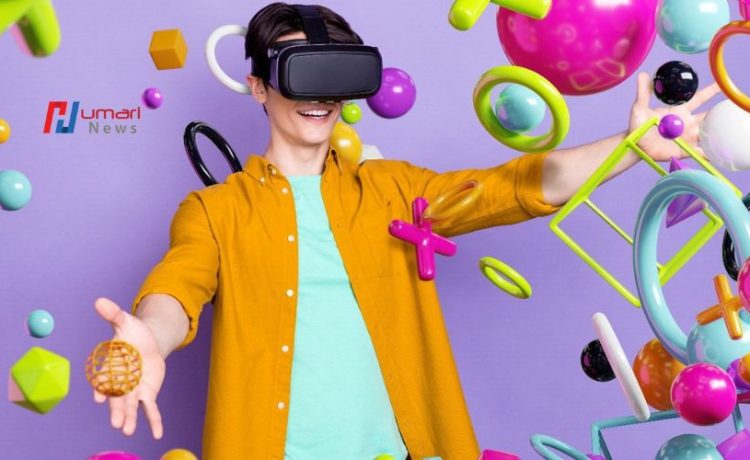Introduction:
In recent years, the gaming industry has seen a monumental shift towards integrating artificial intelligence (AI) and virtual reality (VR) technologies into game development. This transformation has not only revolutionized the way games are played but has also opened up new possibilities for immersive and interactive experiences.
In this article, we will explore the role of AI in gaming, its applications, benefits, and future prospects.
What is AI in Gaming?
Artificial intelligence in games goes beyond pre-programmed responses, allowing the game systems to learn from players’ behavior and dynamically adapt to provide a personalized gaming experience. These systems analyze player actions, preferences, and skill levels to optimize the gameplay, creating unique challenges and interactions tailored to each individual.
The Function of AI in the Gaming Sector
The gaming industry’s interest in AI technology is not only driven by its potential for generating revenue but also by its ability to enhance player experiences and drive innovation. AI in gaming is not limited to entertainment but can also be applied to military training, education, medical training, and mental health therapy.
Game developers are leveraging AI algorithms to automate routine tasks, optimize server performance, and improve gameplay mechanics.
How is AI Used in Gaming?
Non-Player Character (NPC) Behavior
AI engineers are enhancing NPC behavior by implementing smart NPCs in games. By using algorithms such as finite state machines, fuzzy state machines, artificial neural networks, and genetic algorithms, NPCs can interact more realistically with players, creating a more immersive gaming experience.
Procedural Content Generation
Machine learning algorithms are used to generate new levels, items, and quests in games, keeping players engaged with fresh and exciting content. AI ensures that content generation follows predetermined rules, avoiding ethical concerns and ensuring a seamless gaming experience.
Cheating Detection
AI algorithms can detect cheating players by analyzing gameplay data and identifying anomalous patterns. By using supervised machine learning algorithms, developers can train AI to differentiate between cheating and non-cheating behaviors, maintaining fair gameplay for all players.
Dynamic Difficulty Adjustment
AI can adjust a game’s difficulty based on a player’s skill level, ensuring a challenging yet enjoyable gaming experience. By tracking key metrics and creating a model of the player’s skill level, AI can predict performance and adjust difficulty levels accordingly.
Personalized Gaming Experience
Content recommendations and personalized gameplay experiences are made possible by AI in cloud gaming platforms. By recommending items, heroes, and quests that suit individual players’ preferences, AI enhances the overall gaming experience and keeps players engaged.
Enhanced Graphics with AI Upscaling
AI upscaling technology allows players to experience high-quality graphics on devices with lower processing power. By analyzing and predicting missing details in lower-resolution images, AI enhances the visual quality of games, offering a more immersive gaming experience.
Benefits of AI in Gaming
- Enhanced NPC behavior for more realistic interactions
- Procedural content generation for dynamic and engaging gameplay
- Cheating detection to maintain fair play
- Dynamic difficulty adjustment based on player skill levels
- Personalized gaming experiences through content recommendations
- Enhanced graphics with AI upscaling for immersive visuals
Disadvantages of AI in Gaming
- Unpredictable procedural content generation leading to repetitive patterns
- Increased computational resources and gaming prices
- Ethical concerns regarding AI decision-making and content moderation
Major Trends in AI Gaming
- Generative AI for realistic game worlds and characters
- AR/VR technology for immersive experiences
- BCI-enabled games for mind-controlled gameplay
- Multiplayer games for social interactions
- AI opponents for adaptive and challenging gameplay
Future of AI in the Gaming Industry
The future of AI in gaming holds tremendous potential for creating more immersive and interactive experiences. With advancements in hardware capabilities, edge AI devices, VR/AR technologies, and quantum computing, games are expected to become even more lifelike and engaging.
However, ethical concerns surrounding AI gaming and its impact on real-world interactions continue to be a point of debate.
Conclusion:
AI in gaming is transforming and reshaping the industry by enhancing player experiences, improving gameplay mechanics, and pushing the boundaries of interactive entertainment. As technology continues to evolve, the possibilities for AI in gaming are endless, offering unique opportunities for innovation and creativity in game development.
In conclusion, the integration of AI and VR technologies is revolutionizing the gaming industry, offering unique opportunities for innovation, creativity, and immersive experiences. As technology continues to advance, we can expect to see even more groundbreaking developments in AI gaming that will reshape the way we play and interact with games.







